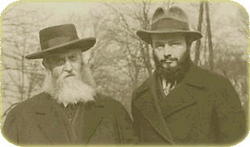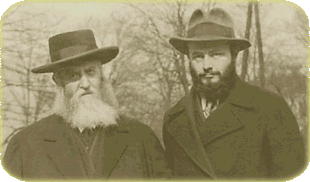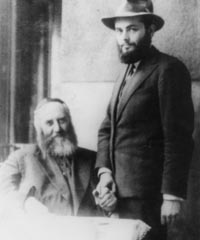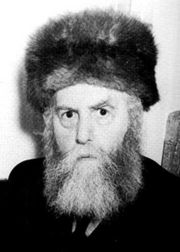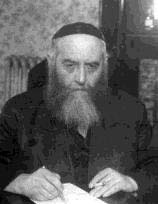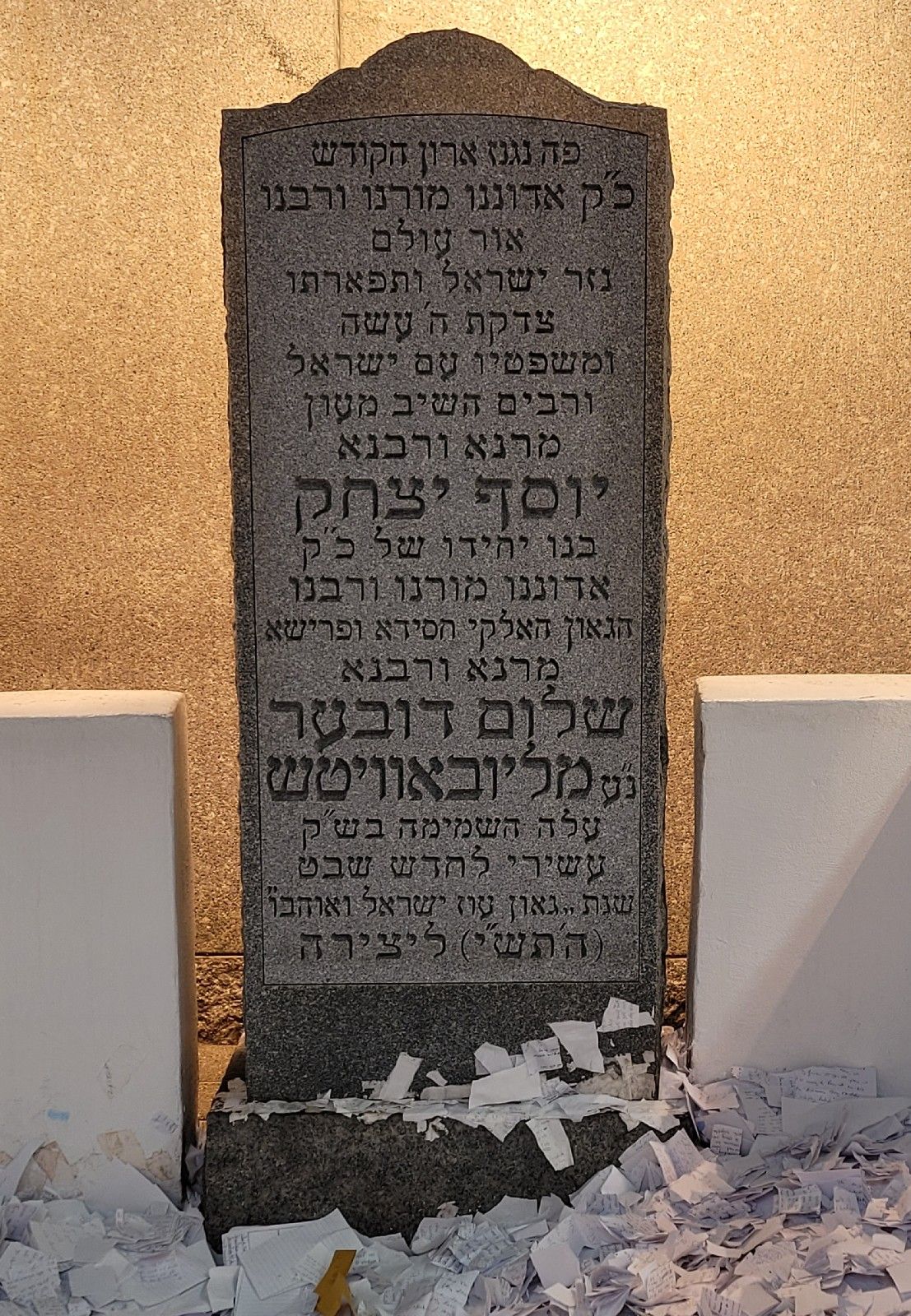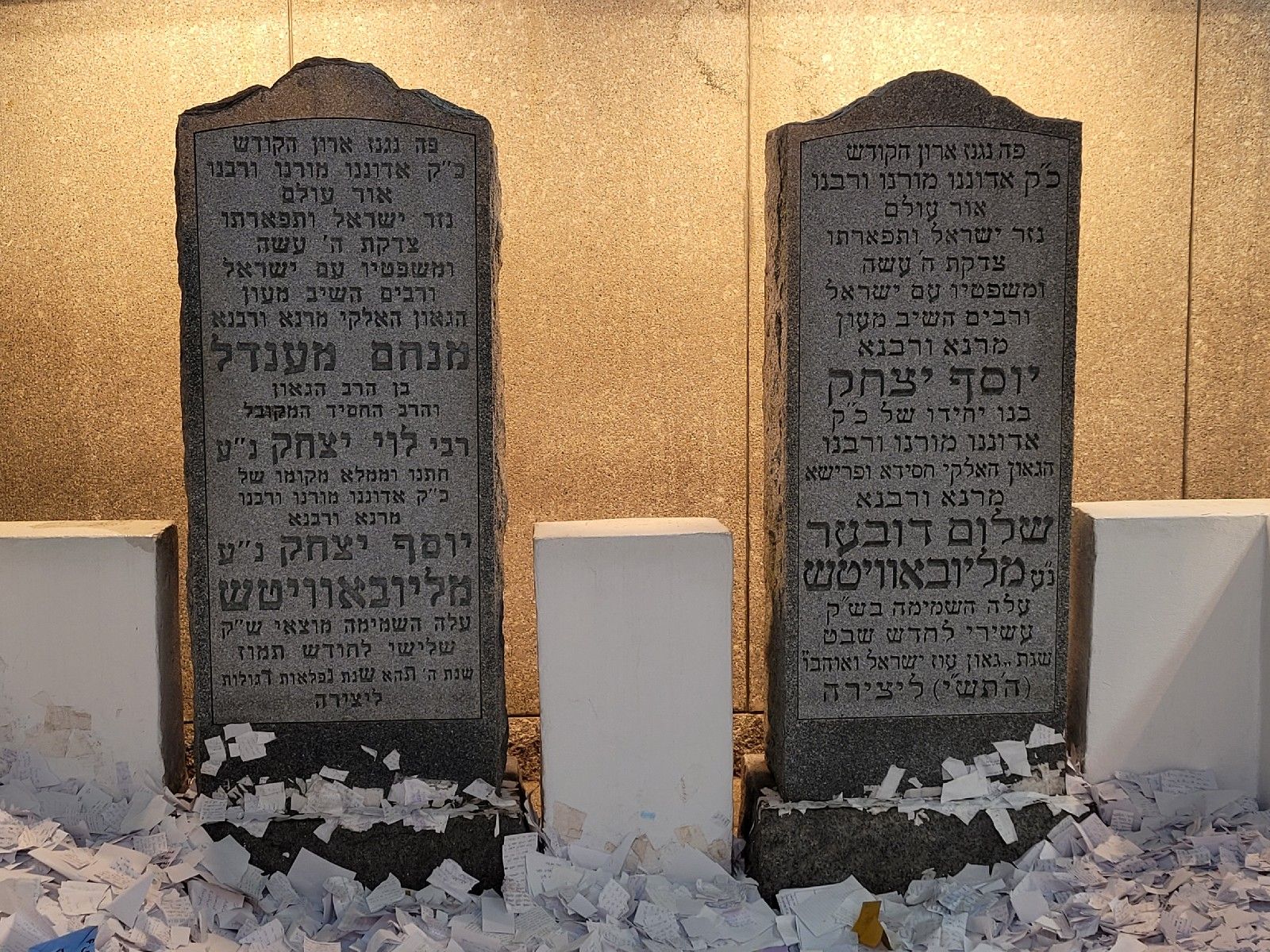appointed as his father's personal secretary at the age of fifteen. In 1897 at the age of seventeen he married a distant cousin Nehama Dina Schneersohn. He was appointed as the first head of the new Tomchei Temimin network of Lubavitch yeshivas in the Russian empire. As he matured, he campaigned for the rights of Jews by appearing before the Czarist authorities in St. Petersburg and Moscow. During the Russo-Japanese War of 1904 he sought relief for Jewish conscripts in the Russian army by sending them kosher food and supplies. With rising anti-Semitism and pogroms against Jews, he travelled with other prominent rabbis to seek help from Western European governments. He was arrested four times between 1902 and 1911 by the Czarist police because of his activism, but was released each time. Upon the death of his father, Rabbi Sholom Dovber Schneersohn, in 1920, Rabbi Joseph Isaac Schneersohn became the sixth Rebbe (or "paramount leader") of Lubavitch. During the Nazi's attack against Poland in 1939 Rabbi Joseph I. Schneersohn refused to leave Warsaw. He remained in the city during the bombardments and its capitulation to Nazi Germany. He gave the full support of his organizations under Chabad Hasidism to assist as many Jews as possible to flee the invading armies. With the intercession of the United States Department of State and with the lobbying of many Jewish leaders on behalf of the Rebbe, he was finally granted diplomatic immunity and given safe conduct to go via Berlin, then to Riga, and then on to New York City where he arrived on March 19, 1940. He settled himself in the Crown Heights section of Brooklyn in New York City. He began gathering and sending out a small amount of his newly trained rabbis to other cities which was emulated and amplified by his son-in-law and successor Rabbi Menachem Mendel Schneerson with phenomenal success. He had no sons, and his younger son-in-law, Rabbi Menachem Mendel Schneerson succeeded him as Lubavitcher Rebbe. The son of Shalom Dovber Schneersohn and Sterna Sarah he married Nechamah Dinah and they had the following three daughters: Chanah Gurary,
Chaya Mushka (wife of Menachem Mendel Schneerson) and
Sheina Horenstein.
appointed as his father's personal secretary at the age of fifteen. In 1897 at the age of seventeen he married a distant cousin Nehama Dina Schneersohn. He was appointed as the first head of the new Tomchei Temimin network of Lubavitch yeshivas in the Russian empire. As he matured, he campaigned for the rights of Jews by appearing before the Czarist authorities in St. Petersburg and Moscow. During the Russo-Japanese War of 1904 he sought relief for Jewish conscripts in the Russian army by sending them kosher food and supplies. With rising anti-Semitism and pogroms against Jews, he travelled with other prominent rabbis to seek help from Western European governments. He was arrested four times between 1902 and 1911 by the Czarist police because of his activism, but was released each time. Upon the death of his father, Rabbi Sholom Dovber Schneersohn, in 1920, Rabbi Joseph Isaac Schneersohn became the sixth Rebbe (or "paramount leader") of Lubavitch. During the Nazi's attack against Poland in 1939 Rabbi Joseph I. Schneersohn refused to leave Warsaw. He remained in the city during the bombardments and its capitulation to Nazi Germany. He gave the full support of his organizations under Chabad Hasidism to assist as many Jews as possible to flee the invading armies. With the intercession of the United States Department of State and with the lobbying of many Jewish leaders on behalf of the Rebbe, he was finally granted diplomatic immunity and given safe conduct to go via Berlin, then to Riga, and then on to New York City where he arrived on March 19, 1940. He settled himself in the Crown Heights section of Brooklyn in New York City. He began gathering and sending out a small amount of his newly trained rabbis to other cities which was emulated and amplified by his son-in-law and successor Rabbi Menachem Mendel Schneerson with phenomenal success. He had no sons, and his younger son-in-law, Rabbi Menachem Mendel Schneerson succeeded him as Lubavitcher Rebbe. The son of Shalom Dovber Schneersohn and Sterna Sarah he married Nechamah Dinah and they had the following three daughters: Chanah Gurary,
Chaya Mushka (wife of Menachem Mendel Schneerson) and
Sheina Horenstein.
Family Members
Sponsored by Ancestry
Advertisement
Records on Ancestry
Sponsored by Ancestry
Advertisement
